At the core of our work are three key pillars: our member organisations, working together to protect democracy and human rights across Wider Europe; our Board, providing strategic direction; and our Secretariat in Berlin, driving day-to-day operations.
Members are the heart of CSF. We are a network of 157 civil society organisations from 21 countries, united by a common goal: strengthening democracy and human rights across Wider Europe.
Our members work in the fields of human rights, environmental protection, the prevention of torture, gender equality and LGBTQ+ rights, among many others.
member organisations
working groups
Civic engagement looks very challenging today, especially in our field – anti-corruption efforts. That’s why resultative partnerships and collective actions became extremely important. Forum is a perfect space for that. We’re proud to now be part of this community of the like minded people and contribute to its meaningful work.
Serving as a platform for civil society cooperation, the Working Group focuses on promoting and protecting human rights and the rule of law across Europe, including in Russia. In light of ongoing challenges to fundamental rights and legal standards, it fosters exchange on current trends, legal frameworks and civil society strategies to uphold democratic principles and safeguard individual freedoms.
The group brings together experts, activists and scholars committed to safeguarding and advancing the principles of free expression across Wider Europe. It focuses on three interconnected areas that shape how societies communicate and engage in democratic life.
The first area, MEDIA, addresses freedom of speech and expression, the protection and support of public interest media and the challenges faced by journalists and media outlets under pressure or in exile. The second area, NARRATIVES, promotes the role of EU values, shared histories and practices of remembrance in shaping inclusive and forward-looking public discourse. The third area, RIGHTS, focuses on digital rights and access to reliable information as essential components of contemporary life. Together, these fields form the foundation for transparent, accountable and participatory societies.
The overall aim of the working group is to foster solidarity, collaboration and an enabling environment where communication serves both democracy, human rights and the broader public good. In a fast paced world, the WG is nevertheless a flexible, open-ended work process ready for future adjustments.
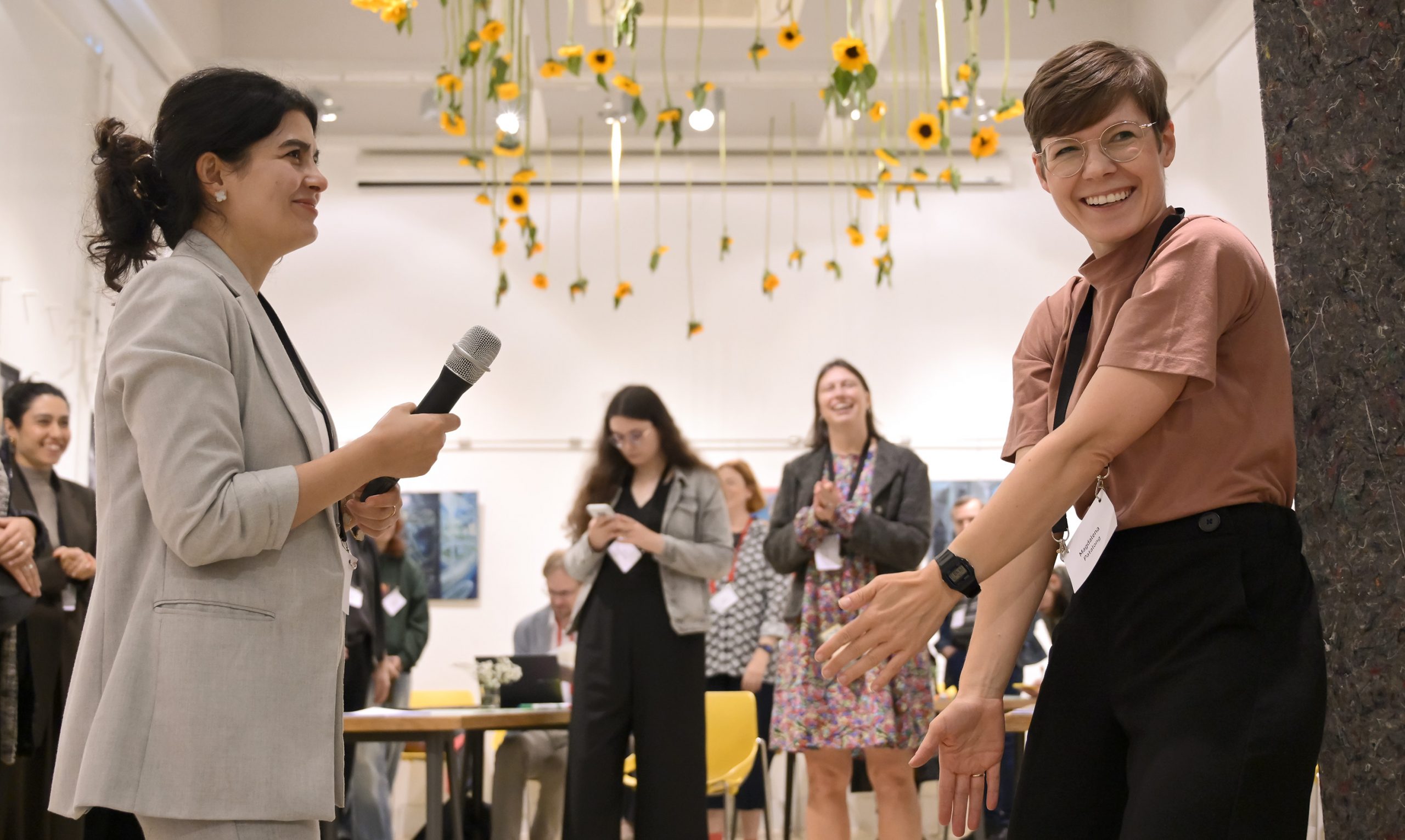
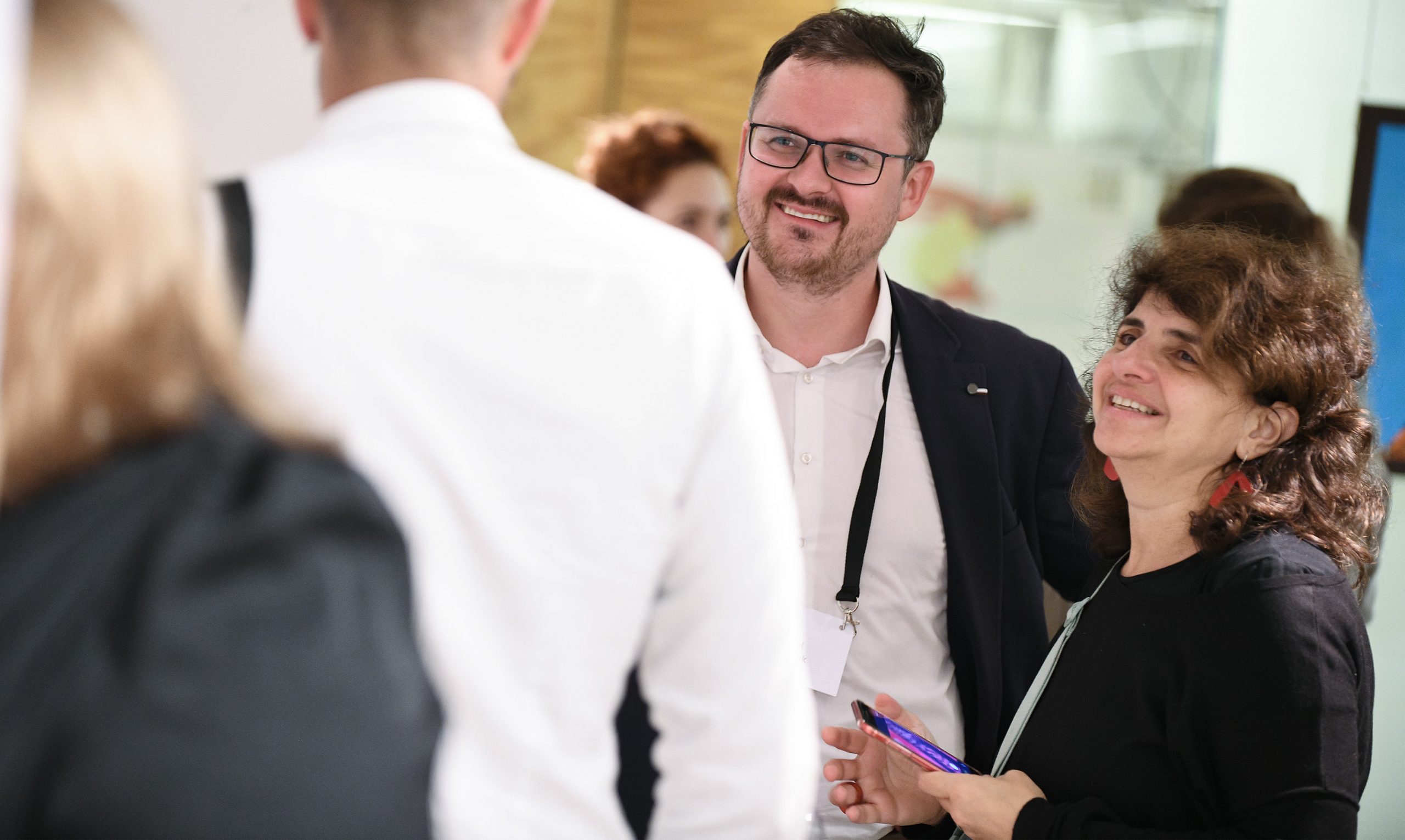
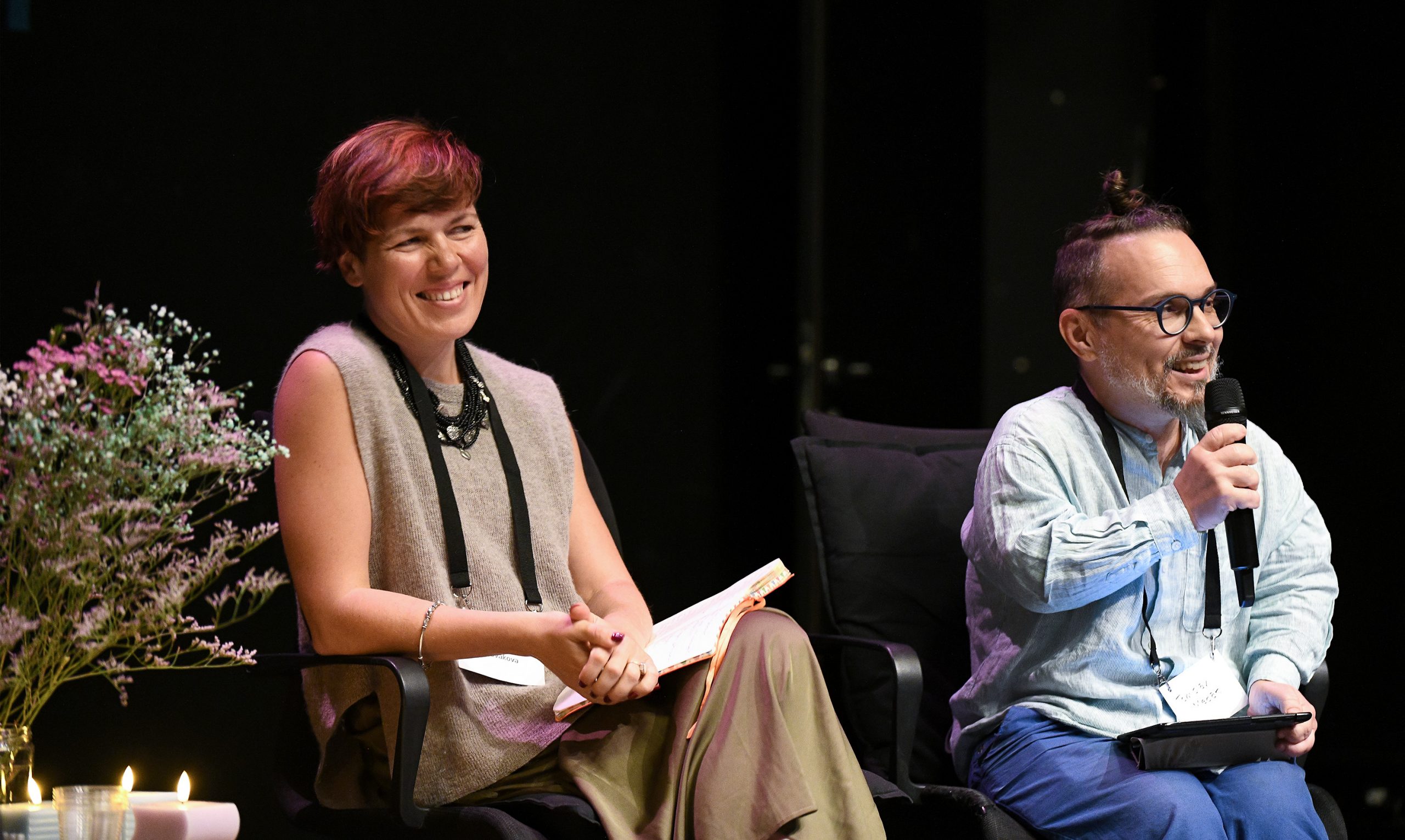
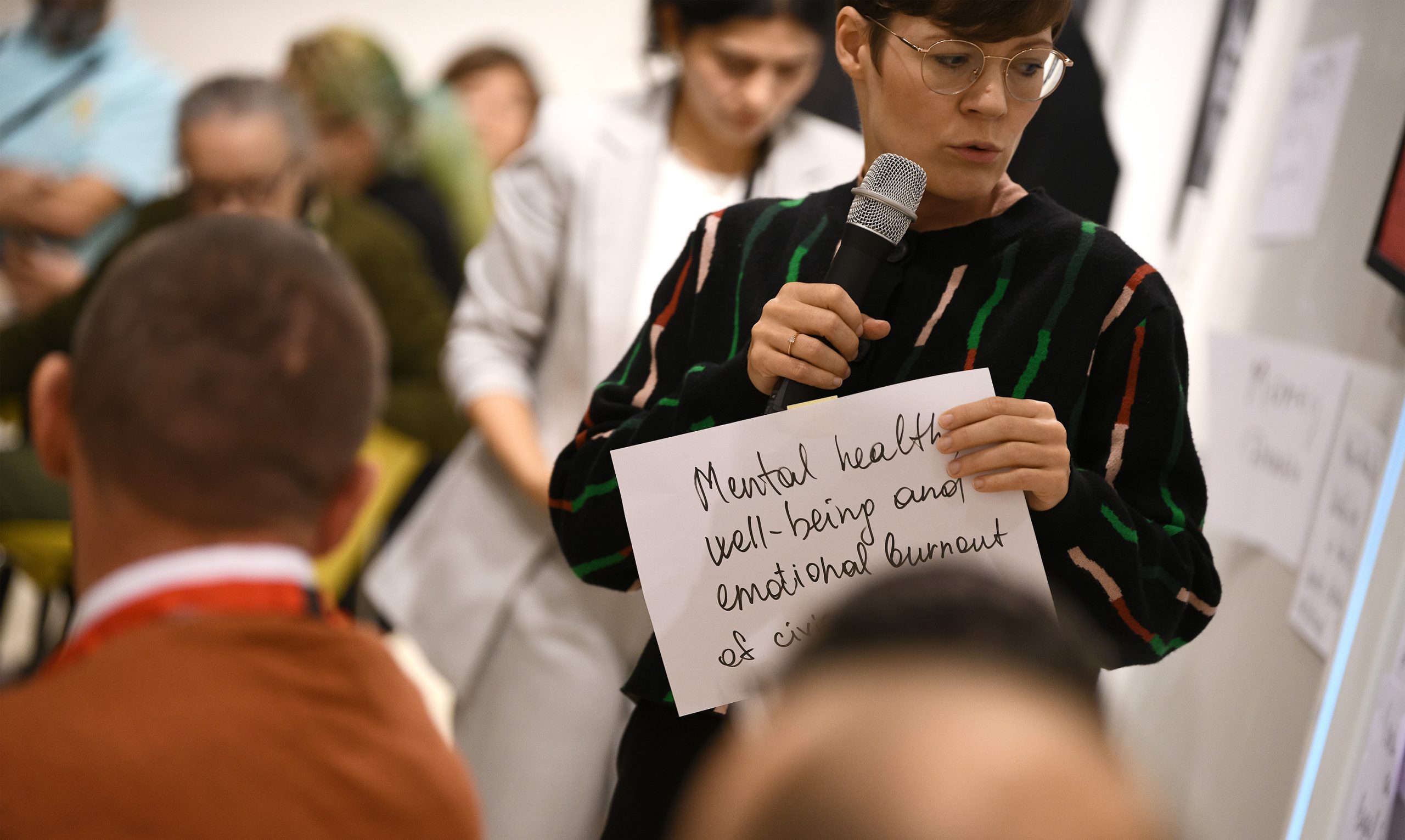
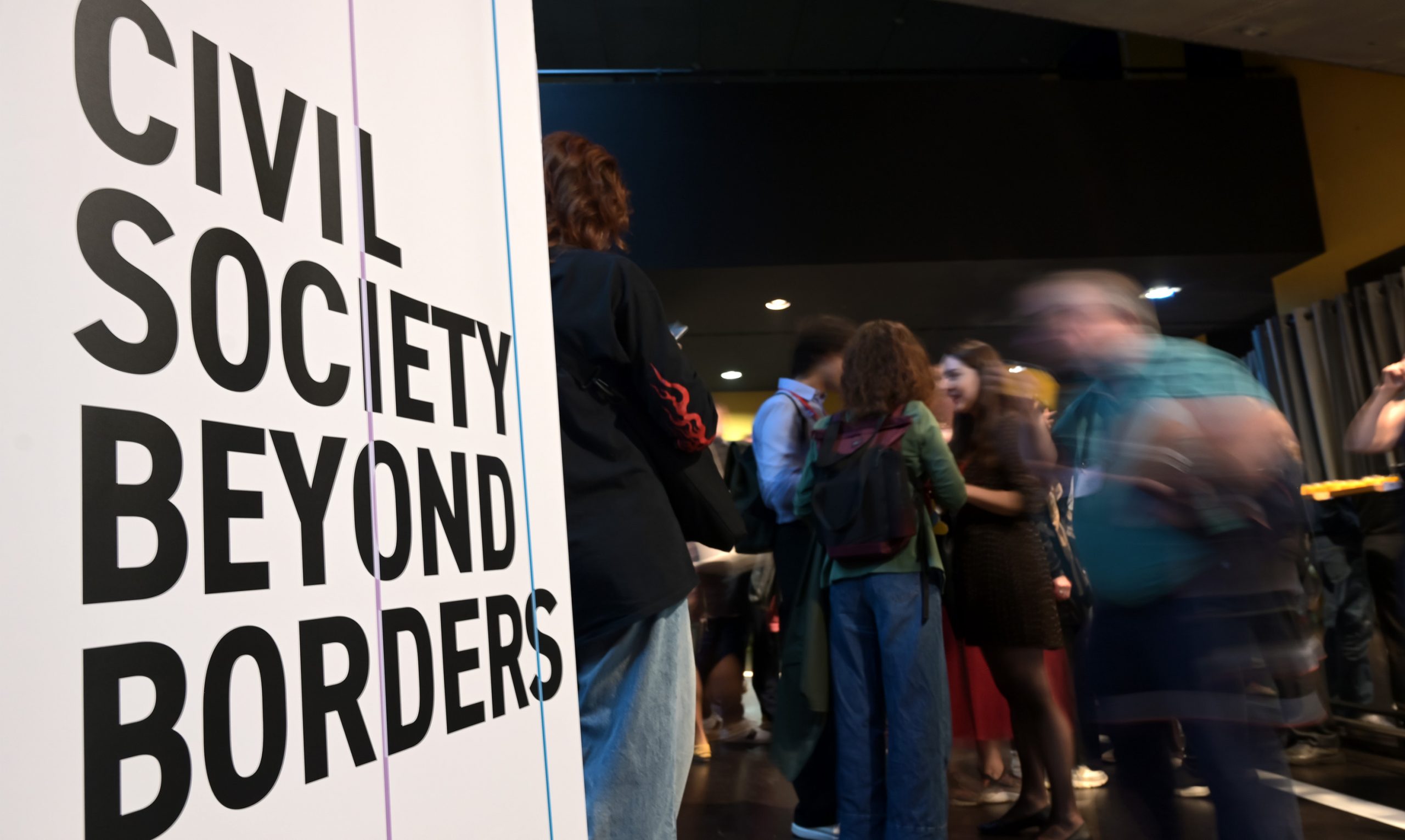
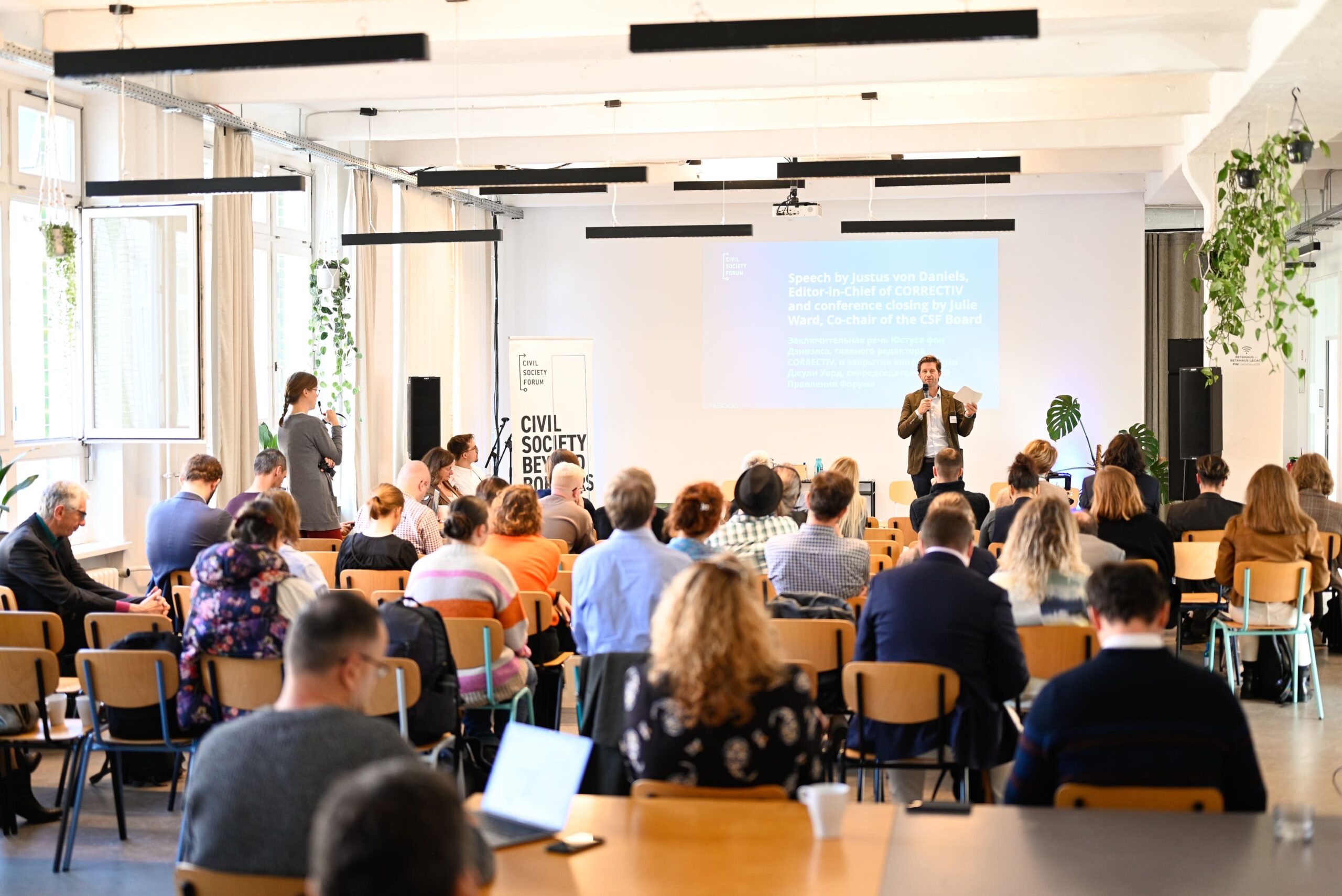
The Civil Society Forum’s Annual Conference is a cornerstone of our community — a space where members and partners come together each year to reconnect, exchange ideas, and strengthen our shared work.
Our conference moves across Europe, each time offering a new local context. In recent years, we’ve met in Vilnius, Warsaw, and last year in Berlin — a city deeply tied to the values of freedom and transformation, and home to the CSF Secretariat.
Elected by our members, the CSF Board ensures strategic direction and decision-making. Board members serve for two years at a time, with the opportunity to be re-elected for up to six years.
Nikola Mokrović, political scientist by training. Serves as an archivist and researcher in Documenta – Centre for Dealing with the Past, Zagreb.
Based in Berlin, the Secretariat ensures that CSF’s mission translates into action. Our team manages programmes, advocacy, solidarity initiatives, communications and finance.
Nataliya Novakova
Maksim Smekhov
Programmes Lead
Friederike Behr
Advocacy Manager
Andrey Plotnitskiy
Project Manager
Christoph Sproul
Project Manager
Artem Tiurin
Project Manager
You are currently viewing a placeholder content from Vimeo. To access the actual content, click the button below. Please note that doing so will share data with third-party providers.
More InformationYou are currently viewing a placeholder content from YouTube. To access the actual content, click the button below. Please note that doing so will share data with third-party providers.
More InformationYou need to load content from reCAPTCHA to submit the form. Please note that doing so will share data with third-party providers.
More InformationYou are currently viewing a placeholder content from Facebook. To access the actual content, click the button below. Please note that doing so will share data with third-party providers.
More InformationYou are currently viewing a placeholder content from Instagram. To access the actual content, click the button below. Please note that doing so will share data with third-party providers.
More InformationYou are currently viewing a placeholder content from X. To access the actual content, click the button below. Please note that doing so will share data with third-party providers.
More Information